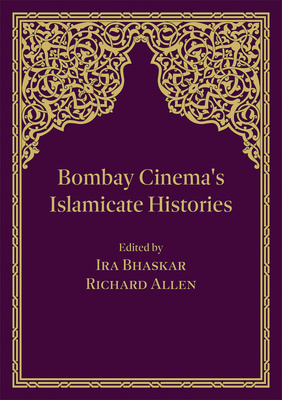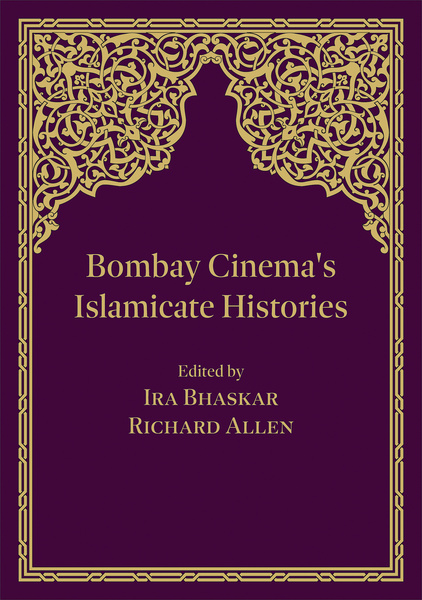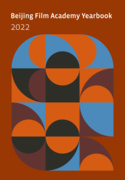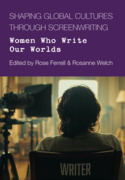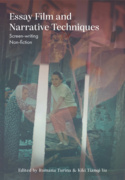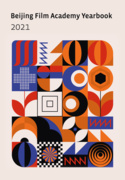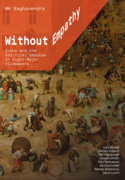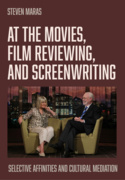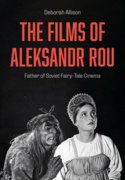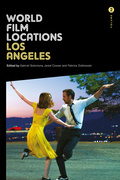Bombay Cinema's Islamicate Histories (Book)
Popularly known as Bollywood, Bombay cinema conjures up song, dance and starry-eyed romance. Where do those conventions come from? Many derive from the historical influence of Muslim cultures interacting with other traditions in the Indian subcontinent. Contributions by major scholars of South Asian cultural history and Indian Cinema 105 b&w illus.
Edition
Bombay Cinema's Islamicate Histories comprises fourteen essays on the history and influence of cultural Islam on Bombay cinema. These essays are written by major scholars of both South Asian cultural history and Indian cinema working across several continents. Following Marshal Hodgson, the term ‘Islamicate’ is used to describe Muslim cultures in order to distinguish the cultural forms associated with Islam from the religion itself. Such a distinction is especially important to observe in South Asia where, over a thousand-year history, Muslim cultures have commingled with other local religious and cultural traditions to form a rich vein of syncretic aesthetic expression. This volume argues that the influence of Muslim cultures on Bombay cinema can only be grasped against the backdrop of this long history, an argument that informs the shape of the whole.
The book is divided into two sections. The first, ‘Islamicate Histories’, charts the historical roots of South Asian Muslim cultures and the precursors of Bombay cinema’s Islamicate idioms in the Urdu Parsi Theatre, the Courtesan cultures of Lucknow, the traditions of miniature painting, poetry, song and their performance, and the various modes of story-telling that derive from Perso-Arabic traditions. The second section, ‘Cinematic Forms’, discusses the way in which these Islamicate histories are partially constitutive of the traditions of representation, performance and story-telling that give Bombay cinema its distinctive character, traditions that have continued into Bollywood. It explores ‘Islamicate’ genres like the ‘Oriental’ film and the ‘Muslim Social’, as well as forms of poetry and performance like the ‘ghazal’ and ‘the qawwali’.
Bombay Cinema’s Islamicate Histories is published at a time of acute crisis in the perception and understanding of Islam, where Islamophobia stereotypes Muslims as incipient fifth column and Hindu fundamentalism is ascendant. It demonstrates that Muslim and Hindu cultures in India are inextricably entwined and shows how the syncretic idioms of Islamicate cultural history inform the very identity of Bombay cinema, even as that cinema has also instrumentalized Islamicate idioms to stereotype and even demonise the Muslim, especially in contemporary Bollywood.
This book argues that many of the idioms of Bombay cinema that we love are derived from the historical influence of Muslim cultures as they interacted with other traditions in the Indian subcontinent. It traces the emergence of cultures of poetry, dance, song, performance and story-telling out of the thousand-year history of Islam on Indian soil, and describes the ways in which they underlie and inform the expressive forms of Bombay cinema. It is timely to be reminded of the contribution of Muslim cultures to the distinctive and widely recognized popular cinema of India at a historical moment when the cultural influence of Islam on India is being denied by forces which seek to turn the country away from cultural pluralism towards Hindu fundamentalism. Bombay Cinema’s Islamicate Histories features contributions by major scholars of both South Asian cultural history and Indian cinema working across several continents.
The audience for this book will be primarily graduate and advanced undergraduate students of film studies. The writing is accessible and lively and individual chapters will be suitable for classroom use.
It will be of value in disciplines outside film studies, where the Islamicate tradition in general and its impact on film in particular is taught. It will find an audience in disciplines such as history, cultural studies, women's studies, visual studies and South Asian area studies. It will also be of interest to anyone who wants to know how cinema negotiates the parameters of Muslim identity in response to historical and contemporary events in India.
Richard Allen is chair professor of film and media art and dean of the School of Creative Media at City University Hong Kong
Ira Bhaskar is professor of cinema studies at the School of Arts & Aesthetics, Jawaharlal Nehru University, New Delhi, India
Introduction: Bombay cinema’s Islamicate histories
– Richard Allen & Ira Bhaskar
Part One: Islamicate Histories
- Passionate refrains: The theatricality of Urdu on the Parsi stage
Kathryn Hansen
- The Persian Masnavī tradition and Bombay cinema
Sunil Sharma
- Reflections from Padminī’s Palace: Women’s voices of longing and lament in the Sufi romance and Shiʿi elegy
Peter Knapczyk
- Situating the Ṭawāʼif : Nostalgia, Urdu literary cultures and vernacular modernity
Shweta Sachdeva Jha
- Mughal chronicles: Words, images, and the gaps between them
Kavita Singh
- Justice, love and the creative imagination in Mughal India
Najaf Haider
- The ‘Muslim presence’ in Padmaavat
Hilal Ahmed
Part Two: Cinematic Forms
- Ali Baba’s open sesame: Unravelling the Islamicate in Oriental fantasy films
Rosie Thomas
- The textual, musical and sonic journey of the Ghazal in Bombay cinema
Shikha Jhingan
- The Sufi sacred, the Qawwali and the songs of Bombay cinema
Ira Bhaskar
- Avoiding Urdu and the Ṭawāʼif: Re-gendering Kathak dance in Jhanak Jhanak Payal Baaje
Philip Lutgendorf
- The poetics of Pardā
Richard Allen
- Transfigurations of the star body: Salman Khan and the spectral Muslim
Shohini Ghosh
- Terrorism, conspiracy and surveillance in Bombay’s urban cinema
Ranjani Mazumdar
'This collection shows how Islamicate cultural forms have been absorbed so fully into Bombay cinema and Bollywood film that it is no longer apparent where certain influences have come from. Each essay unweaves a piece of the complicated tapestry that is Indian society today and it makes a strong and powerful statement: that the history of Islam in India cannot be erased or seen as antithetical to the core identity of the nation without destroying the nation itself.'
'Bombay Cinema’s Islamicate Histories, edited by Ira Bhaskar and Richard Allen, highlights the centrality of Islam, Muslims, and “Islamicate” forms and aesthetics in the history of the film industry in Bombay. In doing so, it not only reveals overlooked cinematic pasts, it also effectively demonstrates that modern Indian history is inextricable from the history of Islam. [...] Its novelty is due to the breadth of the contributions and their varied methodological and disciplinary perspectives. The editors seek to tie these contributions together not as a singular narrative, but as a series of intersecting interventions. [...] It is a significant contribution to the scholarship, not only for the ways that it resists contemporary Hindu nationalist narratives, but also because it highlights the potential intersections in multiple contemporary trends in the study of Islam, Muslims, and the Islamicate in South Asian film.'
'A sense of corrective readings of not just Bombay cinema’s film history but of larger art history of South Asia informs these chapters. Such an exercise in contributing to the larger idea of Indian identity with the help of cinema will largely be welcomed for its weaving together of form and sociopolitical conditions that influence form. This indeed is the way art history can be envisioned to inspire film history – breaking it free from isolated formal-chronological treatment of evolution of cinema while giving it definitive prompts to explore the sociopolitical symptoms and consequences of changes in its form. [...] The volume will be of immense interest to scholars of Bollywood as examples of how to do history of the art of film keeping complex factors such as form and identity at the centre of inquiry.'
‘This collection elaborates carefully the waxing and waning of attachment to and detachment from the Islamicate at personal and political levels through the affective register of the cinema. There is no comparable volume that dives so thoroughly into the history, theory and analysis of such a wide array of Islam-derived themes in Bombay cinema’s history, from its inception to the present.
A tour de force in both range and scope. Bombay Cinema’s Islamicate Histories is unfailingly rigorous, lively and groundbreaking.’

